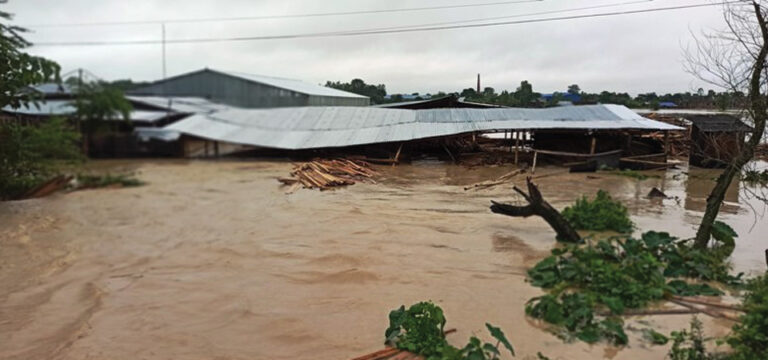
As the torrential post-monsoon rains that occurred recently across the country had adversely affected normal life in different parts of the country, including eastern Nepal, health experts have warned of the spread of various infectious diseases there.
They have asked people of the disaster affected areas to take extra precaution to stay away from any kind of infectious diseases. According to health experts, people living in water-induced disaster-hit areas are under higher risk of bacterial infections and water-borne illnesses.
Senior infectious disease expert, Dr. Anup Bastola, suggested concerned authorities and locals to take extra precautions to keep infectious diseases at bay.
Dr. Bastola asked people to take care of health, as people of the disaster-hit areas are in higher risk of being infected with infectious diseases like diarrhea, dysentery, fever, Hepatitis, typhoid and jaundice including others.
Dr. Bastola said that the risks of diseases are related with post-flood and landslide situations like displacement, availability of safe drinking water and sanitation facilities.
The outbreaks of infectious diseases are also affected by overcrowding, the underlying health status of individuals and the availability of health care services.
In order to prevent the diseases, Dr. Bastola suggested drinking boiled water or purifying water with Piyush.
Dr. Krishna Prasad Poudel, director at Epidemiology and Disease Control Division (EDCD), said that arrangement is being made to avail safe drinking water and sanitation at the flood- and landslide-hit areas.
Discussion is being held with concerned authorities to cope health problems and find solution in disaster-hit areas, he added.
Health Directorates of Province 1 and Sudhurpachhim Province have already provided details of health condition of locals of the disaster-hit areas, said Dr. Poudel and added that necessary arrangement was made for adopting health precautions.
The displacement areas for the disaster victims should be managed with safe drinking water, sanitation, toilets and space to maintain social distancing, he added.
Dr. Poudel asked locals of the flood and landslide affected areas to avoid drinking contaminated water to lower the risk of the spread of diarrhoeal diseases, including dysentery, cholera, typhoid and gastroenteritis.
Locals need to be careful with water and toilet management and purified water, shelter and food, he added.
The concerned authorities must manage temporary toilets, pure drinking water, temporary settlements where people can maintain social distancing, and good sanitation environment to stay away from any kind of infectious diseases.
Source : TRN,






